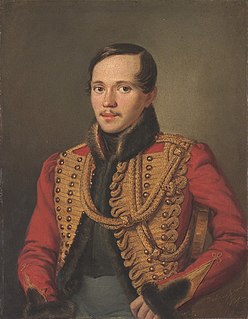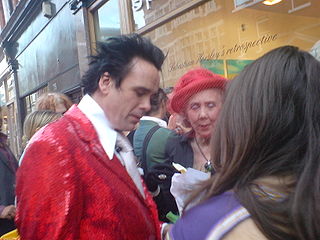A Quote by Aberjhani
The ecstatic beauty and soulful grace of Rumi's poetry inspires human hearts to believe in possibilities beyond the predictably fatal.
Related Quotes
Finding beauty in a broken world is acknowledging that beauty leads us to our deepest and highest selves. It inspires us. We have an innate desire for grace. It's not that all our definitions of beauty are the same, but when you see a particular heron in the bend in the river, day after day, something in your soul stirs. We remember what it means to be human.
Peace does not rest in the charters and covenants alone. It lies in the hearts and minds of all people. So let us not rest all our hopes on parchment and on paper, let us strive to build peace, a desire for peace, a willingness to work for peace in the hearts and minds of all of our people. I believe that we can. I believe the problems of human destiny are not beyond the reach of human beings.
I like poetry, but honestly, I like dramatic literature more. If I had to pick between Rumi and Dostoevsky, I would pick Dostoevsky without even thinking about it. Ninety-nine out of 100 Iranians would probably pick Rumi. Kiarostami, too, would probably pick Rumi first. I try to have the meaning be in the action of the story, not in the symbolism. I want it to be in the action, and it's dramatic action that creates the meaning.
Verse in itself does not constitute poetry. Verse is only an elegant vestment for a beautiful form. Poetry can express itself in prose, but it does so more perfectly under the grace and majesty of verse. It is poetry of soul that inspires noble sentiments and noble actions as well as noble writings.
Loving a holy God is beyond our moral power. The only kind of God we can love by our sinful nature is an unholy god, an idol made by our own hands. Unless we are born of the Spirit of God, unless God sheds His holy love in our hearts, unless He stoops in His grace to change our hearts, we will not love Him... To love a holy God requires grace, grace strong enough to pierce our hardened hearts and awaken our moribund souls.
It occurs to me to wonder: do I believe in any god, or even positively not believe, as James does? I believe in systems and methods. I believe in the beauties of philosophy and poetry. I believe that the work we do and leave behind us is our afterlife; and I believe that history lies, but sometimes so well that I can't bring myself to resent it. I believe that truth is beauty, but not, I'm afraid, the reverse. It doesn't seem sufficient to sustain one in life's rigorous moments. Perhaps I shall embrace Islam. Its standards for poetry seem very high.






































